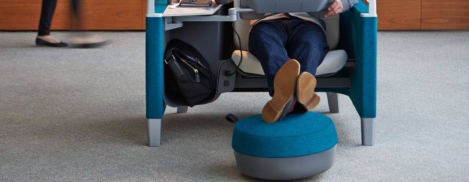July 7, 2015
Demand for East London offices rise as occupiers seek cost effective space
 The amount of leased office space in London over the first half of this year is 13 percent ahead of the same time last year, according to new research published by commercial property consultancy Cushman & Wakefield (C&W). Leasing activity totalled just over 6.26 million sq ft from January to June 2015, compared to the same point in 2014 when 5.6 million sq ft was transacted and is the highest Central London first half total since 1998, when 6.7 million sq ft was let. According to C&W, the figures presented in the report suggest that there was a significant upturn in activity in East London, with 1.2 million sq ft let, only marginally behind the City market (1.24 million sq ft) and significantly ahead of West End volumes (915,000 sq ft). East London offices take-up was at its highest level since Q4 2010 as a result of three transactions over 100,000 sq ft.
The amount of leased office space in London over the first half of this year is 13 percent ahead of the same time last year, according to new research published by commercial property consultancy Cushman & Wakefield (C&W). Leasing activity totalled just over 6.26 million sq ft from January to June 2015, compared to the same point in 2014 when 5.6 million sq ft was transacted and is the highest Central London first half total since 1998, when 6.7 million sq ft was let. According to C&W, the figures presented in the report suggest that there was a significant upturn in activity in East London, with 1.2 million sq ft let, only marginally behind the City market (1.24 million sq ft) and significantly ahead of West End volumes (915,000 sq ft). East London offices take-up was at its highest level since Q4 2010 as a result of three transactions over 100,000 sq ft.




































July 1, 2015
Three ways in which the business case for green building design is moving on
by Dan Callegari • Architecture, Comment, Environment, Facilities management, Workplace design
(more…)